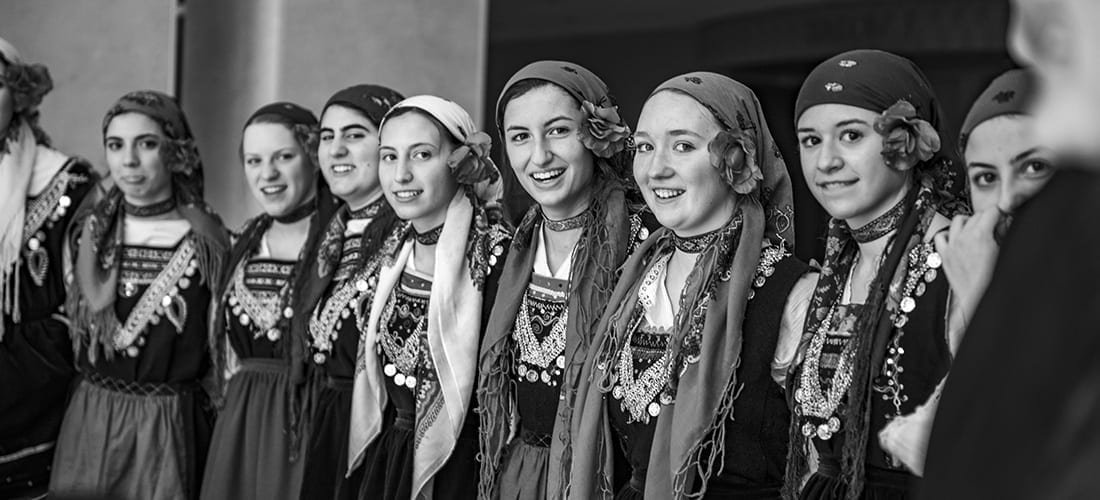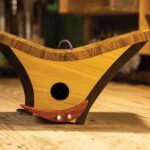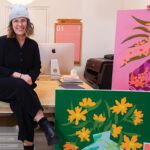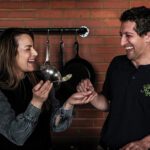Magical movement
September 1, 2020

Stacie Zambas Peroulas leads the largest church-affiliated Greek folk-dance program in the United States.
by Vanessa Infanzon
When Stacie Zambas Peroulas moved to Charlotte 15 years ago, she looked for a Greek dance program like the one she attended growing up in Newport News, Va. She wanted her children to have the same connection to dance she had. When she didn’t find what she was looking for, she decided to help build one at Holy Trinity Greek Orthodox Cathedral in Dilworth.
Peroulas, 44, serves as the board chair of Holy Trinity’s Greek folk dance program, a volunteer position. Her sons, ages 12 and 15, and daughter, 17, participate in the program. She works with a seven-member board to manage the budget and coordinate costuming, fundraising, music and scheduling. More than 400 dancers — ages 5 through adult — are involved in the exhibition and competitive programs. It’s the largest church-affiliated Greek folk dance program in the U.S.
Since the pandemic, Peroulas and her students have had to shift to online instruction. And with the cancellation of this year’s annual Yiasou Greek Festival, typically held in September, her pupils will have to wait a bit longer to share their tradition with the community.
Comments were edited for brevity and clarity.
How did you get started dancing?
My parents tell me I danced before I walked, but officially I started learning Greek folk dance when I was 6 years old at my hometown church in Newport News. It was something most Greek-American kids did — Greek language school and Greek dance.
What’s your favorite traditional dance and why?
Karsilamas is a favorite. It’s danced in various parts of Greece, including the northern mainland and some islands. Many Greek dances are danced in circles, but Karsilamas is a couple’s dance. At its most beautiful, it is a dynamic balance of individual expression and a strong connection between the dancers.
Why is dancing important for kids?
Dance is such a wonderful way to express and release through movement, and in kids, it can help inspire confidence. Greek dance is a living “inheritance” from our ancestors. The kids learn much more than steps; they learn their family histories and they fall in love with the music their grandparents grew up on. It’s unique and a source of pride. It’s highly social and builds meaningful relationships — most of my best friends are the ones I danced with at 6 years old in my hometown.
Why do you think people are fascinated with Greek culture?
Greek culture is about connection, belonging. There is deep joy in the (not so) simple everyday pleasures of delicious food, fresh air, music, movement and great company. Enjoying them all at once is magical. The Greeks are famously wonderful hosts, so I think it’s natural for people to be drawn into our joyful circle. It’s a reminder of the power of simplicity.
What are your favorite Greek foods and where do you get them in Charlotte?
My ultimate snack (and often meal) is the trifecta of Greek cheese, olives and bread. For imported cheese and olives, Charlotte has two good Greek markets: Agora Greek Market on Independence Boulevard and Minos Imported Foods on Monroe Road. For authentic, homemade Greek pastries and great coffee, I love Mocco Bistro on South Boulevard. SP
Pictured above: folk-dance students at Holy Trinity Greek Orthodox Cathedral by Michael Sellas Photography




